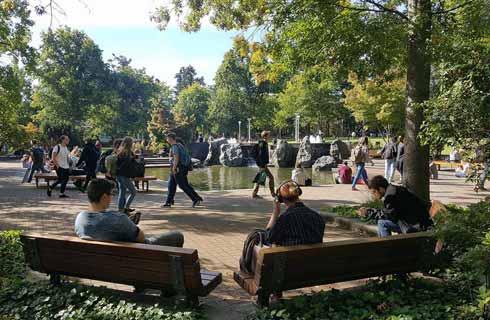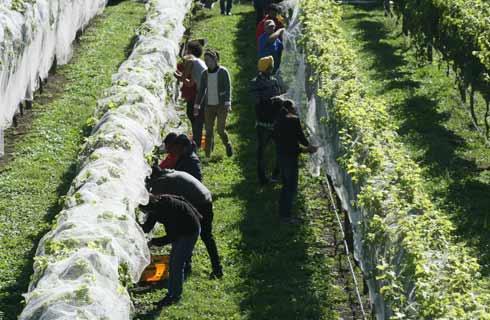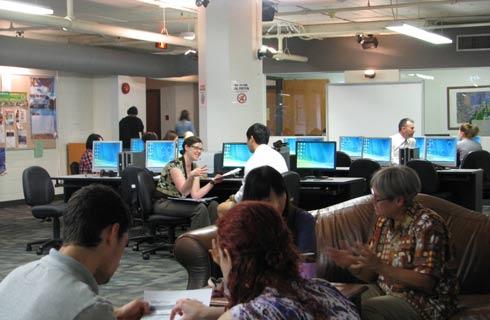心理学研究生证书
Postgraduate Certificate in Psychology

学历文凭
Postgraduate Certificate

专业院系
School of Psychology

开学时间

课程时长

课程学费

国际学生入学条件
IDP—雅思考试联合主办方

雅思考试总分
6.5
- 雅思总分:6.5
- 托福网考总分:90
- 托福笔试总分:160
- 其他语言考试:Pearson PTE Academic 56 and no PTE communicative skills below 46
CRICOS代码: WI0824
申请截止日期: 请与IDP联系 以获取详细信息。
课程简介
Postgraduate certificates and diplomas provide the opportunity for continuing professional development in the same area as an original degree.Psychology is about understanding the behaviour and cognitive processes of people and animals in their physical, social and organisational environment. As a behavioural science, it examines the way behaviour is learned and can be changed. As a social science, it focuses on individuals within the context of families, organisations and other groups, communities, cultures and societies. As a biological science, it studies the senses (hearing, vision, touch) and how the brain and physiological systems relate to behaviour. As a cognitive science it studies perception, attention, memory, thinking and language understanding. The study of development, personality, learning and motivation are also part of Psychology.
相关申请
 预科
预科 奖学金
奖学金 实习机会
实习机会 在校学习
在校学习 跨境学习
跨境学习 校园授课-线上开始
校园授课-线上开始 在线/远程学习
在线/远程学习
开学时间&学费
学费信息仅供参考,请与IDP联系以获取详细信息
| 开学时间 | 时长 | 学费 | 地点 |
|---|
学校排名

世界排名401
数据源:
泰晤士高等教育世界大学排名
关于怀卡托大学

怀卡托大学成立于1964年,被公认为新西兰研究实力顶尖的大学,在2025年QS世界大学排名中位列新西兰前三,全球排名第235位。怀卡托管理学院位列全球商学院前1%。学院以追求卓越和创新而闻名,提供由顶尖学者和知名国际教授授课的优秀学术课程。怀卡托大学每年提供超过2000个实习机会或行业主导的项目,并与政府、行业和社区组织建立了牢固的合作伙伴关系,从而为学生提供更广泛的职业选择和实践学习机会。该大学在汉密尔顿和陶朗加拥有两个充满活力的校区,均位于新西兰出口导向型经济的中心地带。这两个校区营造了充满活力、包容的氛围,营造了一个互相支持的社区,让学生在学业和社交方面都能蓬勃发展,让他们在学习期间感到宾至如归。校园内拥有70多个俱乐部和120多个社团,学生可以参加各种各样的活动。这些俱乐部涵盖各种类别,从学术俱乐部、兴趣俱乐部到体育和文化组织,满足学生的广泛兴趣。国际学生还将获得全面的学业和职业支持,帮助他们适应新国家的生活。
本校相关课程
其他相关课程

MPsych高级心理学
 普利茅斯大学
普利茅斯大学泰晤士高等教育世界大学排名:590
学历文凭
Undergraduate Masters
开学日期
课程费用总额


心理学硕士(临床)
 南昆士兰大学
南昆士兰大学学历文凭
Masters Degree (Research)
开学日期
课程费用总额


心理科学学士
 迪肯大学
迪肯大学泰晤士高等教育世界大学排名:206
学历文凭
Bachelor Degree
开学日期
课程费用总额


MSc Business and Organisational Psychology (with Professional Experience)
 考文垂大学
考文垂大学泰晤士高等教育世界大学排名:637
学历文凭
Masters Degree (Taught)
开学日期
课程费用总额


Postgraduate Diploma in Arts - Applied Behavioural Analysis
 奥克兰大学
奥克兰大学学历文凭
Postgraduate Diploma
开学日期
课程费用总额


保护和灵长类动物行为-理学硕士
 肯特大学
肯特大学泰晤士高等教育世界大学排名:482
学历文凭
Masters Degree (Taught)
开学日期
课程费用总额
















